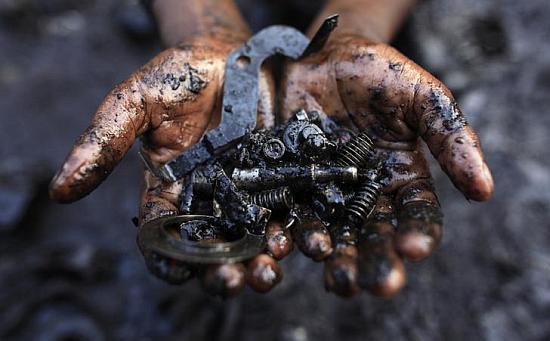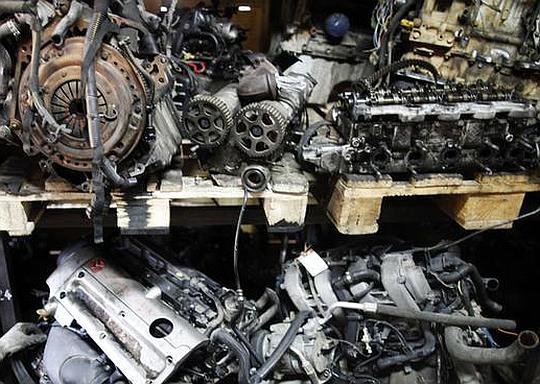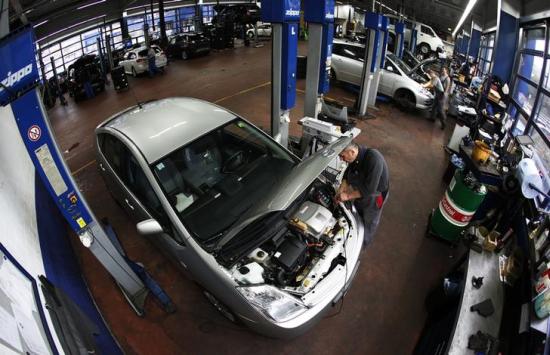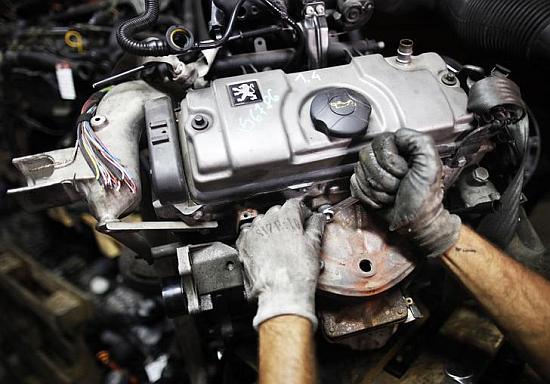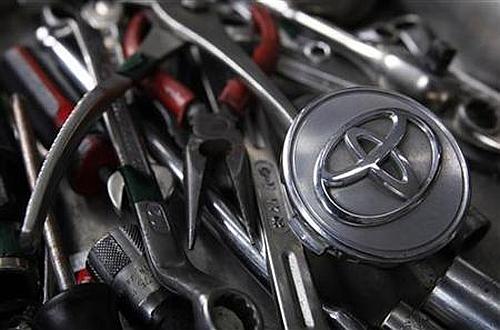 | « Back to article | Print this article |
Auto cos hauled up for monopolising spare parts sales
There is some good news for vehicle owners. The repair and maintenance costs on their cars could come down soon if a report on monopolistic behaviour of automobile makers is accepted by the country's anti-trust watchdog, the Competition Commission of India (CCI).
A report by director general (Investigation) has found 17 automobile manufacturers guilty of indulging in anti-competitive practices by restricting supply of spares in the open market.
If endorsed by CCI, hefty penalties are likely to be imposed on all major car makers. A person in the know indicates that foreign car makers are more susceptible to being held accountable on the charges than the homegrown companies.
"Homegrown companies such as Tata Motors and Mahindra & Mahindra sell spares in the open market except for a few models. Hyundai, too, has started making parts available in retail. It is mostly the foreign companies that have been insisting that their customers go to authorised dealers for repairs, which has led to an increase in service and maintenance costs of vehicles."
As of now, component makers are free to sell some parts to the after-sale market, especially those which go under the hood like piston rings etc.
Click NEXT to read more...
Auto cos hauled up for monopolising spare parts sales
But they are not free to sell parts that are visibly distinctive to each model and have been developed jointly with the carmaker-headlights, taillights, bumper etc.
In this scenario, the procurement costs for independent multi-brand service providers are high as they can source spares only from independent dealers and not from the original equipment suppliers.
It was this disparity that prompted former Maruti Suzuki managing director, Jagdish Khattar, who runs an independent chain of service centres called "Carnation", to implead himself in the CCI enquiry against the anti-competitive practices of the industry.
Spurious products
While automobile makers declined to comment on the issue claiming the matter is under investigation, industry sources say the passage of the order will not only bring down servicing costs of vehicles but also help in curtailing the use of counterfeit components in workshops.
According to industry estimates, nearly 50 per cent of car owners move away from authorised dealerships upon expiry of warranty due to higher servicing costs.
"Servicing expenses are higher by 30-40 per cent at company-operated service outlets than in independent and unorganised workshops. As margins get squeezed due to discounts on new vehicles, dealers resort to increasing servicing costs to make up the lost profits," says an industry executive on the condition of anonymity.
Click NEXT to read more...
Auto cos hauled up for monopolising spare parts sales
Automobile makers insert strict clauses in supply contracts with component makers to sell spares exclusively to company-authorised dealerships to help them stay afloat. Dealers subsequently share the profits on sales of these spares with car makers.
"It's a vicious cycle. Every customer a neighbourhood garage gets is one lost by the dealer. Companies restrict supplies of components in order to run these workmen out of business. The unorganised sector either buys spares in the grey market or uses counterfeit items to retain business", he adds.
The numbers are alarming. Estimates, according to a study done by the auto component industry, suggest nearly 35 per cent of spares, valued at around Rs 8,700 crore (Rs 87 billion) in the Rs 24,800-crore (Rs 248 billion) after-market, are counterfeit products.
The loss to the government exchequer due to lower realisation of indirect taxes on sales of spurious components amounts to Rs 2,200 crore (Rs 22 billion) every year.
More significant is the loss to life and limb which takes place due to fake components fitted on to vehicles in the unorganised repair industry.
One out of every five road accidents in India can be attributed one way or the other to the use of counterfeit automotive parts.
Click NEXT to read more...
Auto cos hauled up for monopolising spare parts sales
Faulty repairs
An added disadvantage of using counterfeit parts is the increase in fuel consumption. It is estimated that nearly 109 million litres of additional petrol and eight million litres of additional diesel are consumed due to the use of spurious parts. In value terms it translates into a loss of Rs 600 crore (Rs 6 billion) per annum.
Another industry source says, "The margins on spares sold through authorised dealerships are often as high as 100 per cent. If you can make available good quality original components at affordable prices, why will a customer not opt for these products? Besides, the issue of safety, it enhances fuel efficiency and the overall experience of a vehicle."
Deepesh Rathore, managing director at auto advisory firm IHS Automotive India, says in the short-term car makers may be disadvantaged in case CCI imposes a penalty, eventually they would stand to gain if prices of components are rationalised in the after-market.
"The order will have an impact on affordability of cars and will eventually help car makers. If customers feel that the prices of components have been kept artificially high, they would move away from authorised service centres. But if prices are rationalised and supplies are eased then, it would promote the use of original parts. Counterfeit products would die a natural death."
Click NEXT to read more...
Auto cos hauled up for monopolising spare parts sales
Once market forces come into play, the customer would benefit in being able to choose from getting their cars serviced either at branded dealerships, independent service chains or at the neighbourhood garages at affordable prices.
At present, independent service chains such as Carnation, MyTVS, Carz have less than 1 per cent share in the Rs 33,000-crore (Rs 330 billion) after-market service and spares industry in India.
While 60 per cent of the market is controlled by authorised dealerships, the remaining business is done at workshops in the unorganised sector.
In contrast, in the UK, France and Germany, independent workshops, company dealerships and neighbourhood garages each account for a third of the servicing market.
The European Commission has made it mandatory for all original equipment makers to make spares available in the open market, which has brought down servicing costs for consumers.
CCI is pursuing the case under Section 4 of the Competition Act that relates to abuse of dominant position by enterprises.
The probe was conducted after a complaint was filed in 2011 alleging that certain car makers were abusing their dominant market position to sell spares only through authorised dealers, which in turn inflated repair costs.
